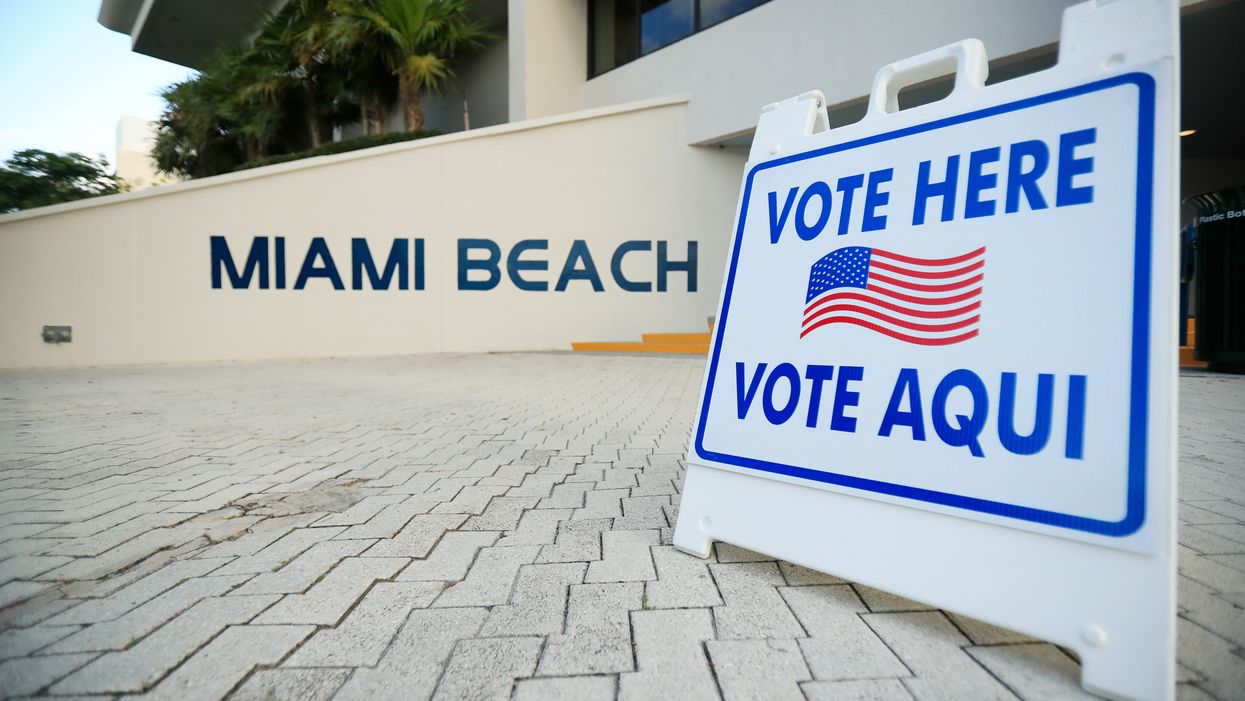Floridians will decide this fall whether to transform the state's polarized politics by opening most primaries to all voters, regardless of party.
Because Florida is the nation's biggest battleground state, the result will be enormously important to the future of one of the core causes of the democracy reform world — diminishing the Republican and Democratic duopoly over political power.
The measure's place on the November ballot was assured Thursday by the state Supreme Court, which is called on to review every constitutional amendment proposed through the gathering of petition signatures. The court ruled 4-1 that the proposal met the necessary legal and clarity requirements.
Attorneys for both parties, which agree on almost nothing in Florida these days, united behind the same argument in trying to derail the referendum: Adoption would deprive partisan loyalists of what should be their exclusive right to choose the preferred candidate of their party.
Advocates of opening the system argued that what is paramount should be the rights of almost 3.7 million unaffiliated Floridians to participate in the political process. The current system, they maintained, is effectively disenfranchising almost 30 percent of the state's electorate — which is growing faster in the state than registration in either party — by barring them from casting ballots at a crucial stage in the electoral process.
Outside of court, they argue that the current primary system, because it reliably produces very conservative or very liberal candidates, fails to reflect the more centrist nature of the population and is unable to adequately respond to the state's needs.
"This may be the most important issue on the ballot in any state other than the presidential election because, all across the country, everyone is looking,'' said Gene Stearns, who runs All Voters Vote, which has been pushing the referendum for five years with $6 million in backing from Miami health care mogul Mike Fernandez.
"If Florida allows nonpartisan elections, everyone else will follow," Stearns said. "The whole objective is to reduce the toxicity of our political process."
Sixty percent of the state will need to vote "yes" for the change to take effect, which would happen in 2024. Then, all registered voters would face a single primary ballot for governor, other statewide offices and seats in the Legislature. The top two vote-getters, even if from the same party, would advance to the general election.
The benefits, advocates say, include rewarding the candidates with the broadest (and likely most centrist) appeal and insulating candidates from defeat at the hands of well-financed opposition campaigns that appeal to the ideological extremes.
Florida is among a minority of states where primaries are completely closed to voters not registered red or blue. Most states allow some sort of crossover or independent participation.
Terms for the far-reaching system that Florida is contemplating include "nonpartisan blanket primary" and "jungle primary." Nebraska was the first to embrace this system, back in 1936, but only for election to what's officially a nonpartisan Legislature. Louisiana (since 1975), Washington (since 2004) and California (since 2010) conduct top-two primaries for both state-level races and seats in Congress. Florida's measure would not apply to Senate and House races.




















Trump & Hegseth gave Mark Kelly a huge 2028 gift